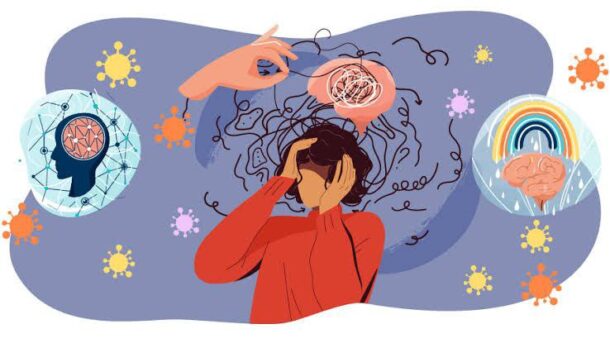Struggling with Anxiety?
Are you feeling constantly on edge, with a sense of impending doom that just won’t seem to lift? Do you find yourself worrying about everything and nothing, unable to shake the feeling of unease that’s become a constant companion? You’re not alone. Anxiety is a common affliction that affects millions of people around the world, and it’s not just a matter of “getting over it” or “toughening up”.
What is Anxiety?
Anxiety is a natural response to stress or perceived danger. In small doses, it can be a useful motivator, helping us to stay alert and focused. However, when it becomes excessive or overwhelming, it can have a significant impact on our daily lives. Symptoms of anxiety can include:
– Feeling restless or on edge
– Difficulty concentrating or making decisions
– Irritability or mood swings
– Sleep disturbances
– Fatigue or low energy
– Physical symptoms such as trembling, sweating, or muscle tension
Why Does Anxiety Happen?
Anxiety can be triggered by a wide range of factors, including:
– Genetics: If you have a family history of anxiety, you may be more likely to experience it yourself.
– Trauma: Prolonged exposure to stress or traumatic events can lead to anxiety.
– Lifestyle: Poor sleep habits, lack of exercise, or an unhealthy diet can contribute to anxiety.
– Personality: Certain personality traits, such as perfectionism or high-strung individuals, may be more prone to anxiety.
How Can I Manage My Anxiety?
Fortunately, there are many effective ways to manage anxiety. Here are a few strategies that may help:
– Breathing exercises: Deep breathing can help calm your nervous system and reduce anxiety symptoms.
– Exercise: Regular physical activity can help reduce anxiety by releasing endorphins, also known as “feel-good” hormones.
– Mindfulness: Mindfulness practices such as meditation or yoga can help you focus on the present moment and reduce worries about the future.
– Cognitive-behavioural therapy (CBT): CBT is a type of therapy that helps you identify and challenge negative thought patterns that contribute to anxiety.
– Relaxation techniques: Techniques such as progressive muscle relaxation, visualization, or guided imagery can help calm your mind and body.
Seeking Help
If you’re struggling with anxiety, it’s important to seek help from a qualified healthcare professional. They can help you develop a personalized treatment plan that addresses your specific needs and circumstances. Don’t be afraid to reach out – there are many resources available to support you on your journey towards managing your anxiety.
Conclusion
Anxiety is a common and treatable condition that affects millions of people around the world. By understanding the causes and symptoms of anxiety, and by using effective management strategies, you can take control of your anxiety and improve your overall well-being. Remember, you’re not alone in this struggle – there are many resources available to support you on your journey towards recovery.
References:
https://www.medicalnewstoday.com/articles/feeling-of-impending-doom
https://www.reddit.com/r/Anxiety/comments/135jihh/how_to_deal_with_sense_of_impending_doom_anxiety/
https://www.nimh.nih.gov/health/publications/generalized-anxiety-disorder-gad
Websites:
Britmed Healthcare: https://britmedhealthcare.co.uk/
Nightingale Hospital: https://www.nightingalehospital.co.uk/
Top Doctors: https://www.topdoctors.co.uk/doctor/ahmed-el-missiry
You can also book, Contact us on WhatsApp 08009708017

